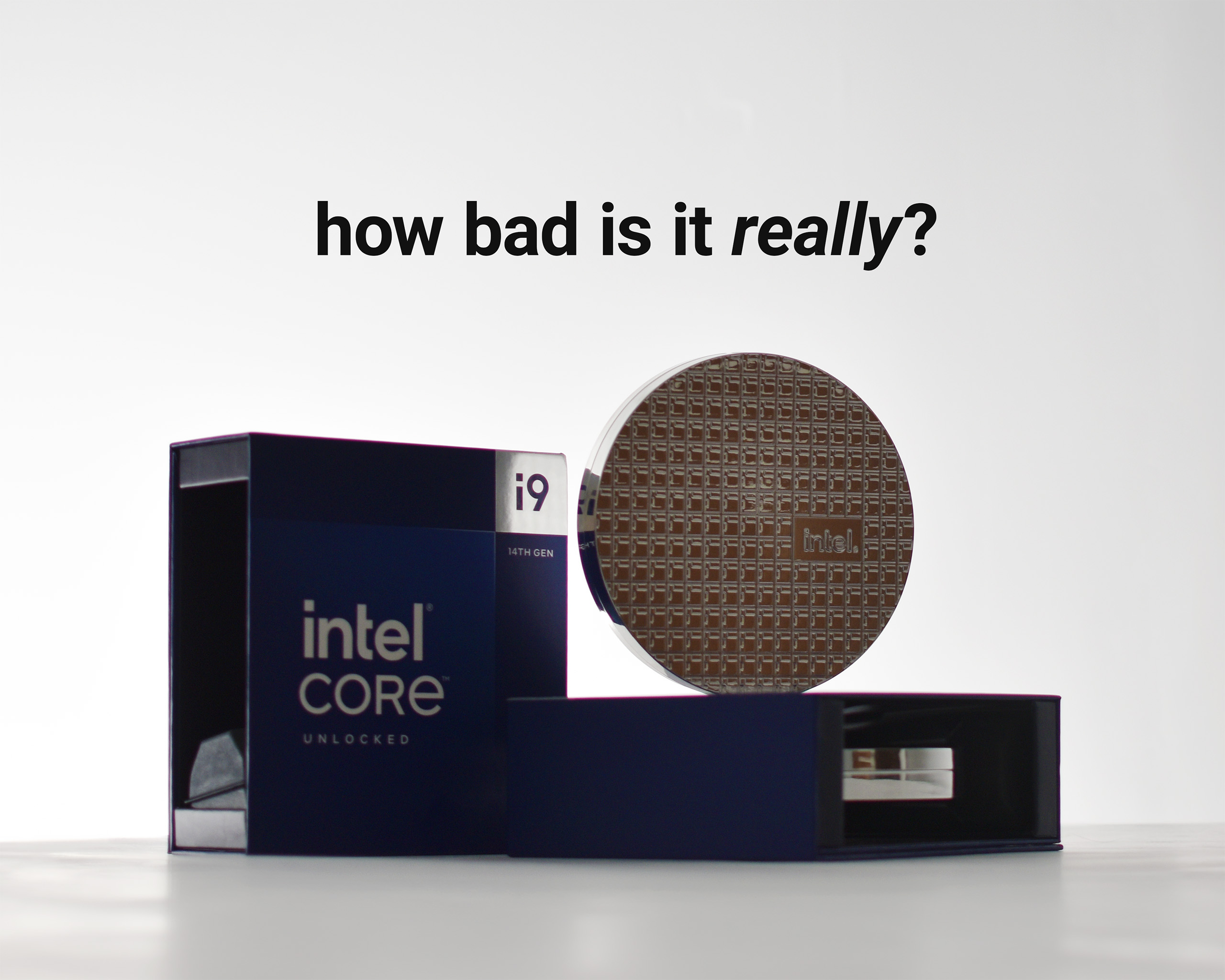
Over the past few months, a number of instability issues have been reported in the industry press with Intel Core 13th and 14th Gen desktop processors. It seems that everyone is still getting to the bottom of what’s causing the issues, but the crux of it, at least as being reported, is that these processors are physically degrading faster than they should, all the way to the point of failure. No specific failure rates have been announced, but suffice to say, they’re higher than expected for what are still relatively new processors.
Intel recently acknowledged that high voltage requests to the processor are a significant factor causing the problem and, as of this publication, has just begun to roll out a patch to address it. This patch will prevent further degradation but not reverse existing damage.
Here’s the thing though – despite what’s being reported, Velocity Micro has experienced virtually no failures of 13th and 14th Gen processors in the field, and certainly no more on a percentage level than previous gen.
So what’s going on here?
Theory 1 – The reports of Intel 14th Gen’s death have been greatly exaggerated
It’s extremely possible that the severity of the degradation issue is simply being over reported. Influencers and press need content, and frankly, Intel is an easy target right now. That’s not to say that the problem is non-existent, because it’s obviously very real – Intel has acknowledged it and offered extended warranties on the affected parts – but rather that it’s potentially just not quite as serious as initially thought. It’s also possible though that since the issue appears to be from hardware degradation over time, that we’re still on the upswing of reported support issues, and that the actual severity will become more evident in the near future.
Either way, time will tell.
Theory 2 – Something specific to our build process is preventing this CPU degradation
Firstly, we make it a policy to always use the latest available tested BIOS on all builds. Our ability to move swiftly and adopt a new BIOS quickly may be one factor that reduced the severity of the issue in our builds.
We’ve also discussed in this blog and our site ad nauseum about what makes our build process different. Our proprietary tuning techniques stay away from over-volting like a lot of quick and dirty methods used by the larger manufacturers, while delivering the world’s best performance. The fastest PC in the world is worth nothing if it’s not stable. That’s why we invest so heavily in cooling and will only use motherboards with premium VRMs on higher TDP processors like the i7 and i9s that are reporting problems.
To go along with that, we will in rare cases – and only when the customer specifically asks for it – increase the voltages on a processor beyond Intel’s recommended settings. And when we do, it’s with the knowledge that 25+ years experience gets us to know we’re doing things right. Since higher voltages appear to be tied to the failures, it’s our working theory that our practice of emphasizing stability is what’s keeping our PCs running where others are not.
Where do we go from here?
For now, we’ll continue to parse through any additional data that we receive from Intel and our other hardware partners. I do think we’re still early in the discovery period of this issue and that more information will continue to become available. In the meantime, we’re taking the following action:
- We’ll be spending the next few days validating Intel’s latest patches, then begin distributing to customers as applicable. A list of new BIOS’s along with update instructions will be available in our support portal shortly.
- We’ll begin implementing updated BIOS with patch into new builds immediately, ensuring that future shipments are not impacted.
- Because all of our builds also come with individual component warranties, Intel’s 5 total year extended warranty is fully applicable on all prior shipments. We’ll continue to work with customers who need assistance with any processor related warranty issues as needed.
As always, if you have questions or concerns, simply contact us any time.
Josh Covington
Latest posts by Josh Covington (see all)
- RTX 6000 Pro Blackwell - July 1, 2025
- What is CUDIMM? - January 29, 2025
- X870 vs B850: Choosing the Right Motherboard for Your Build - January 17, 2025